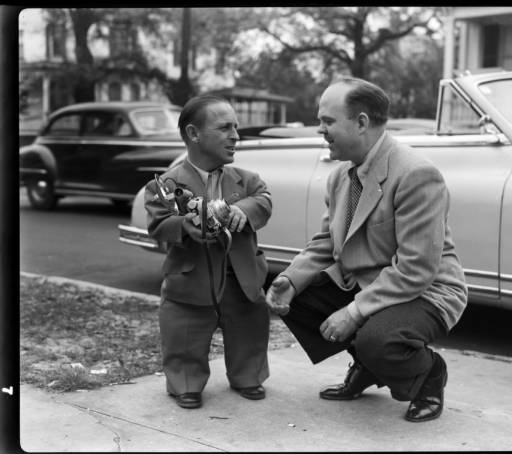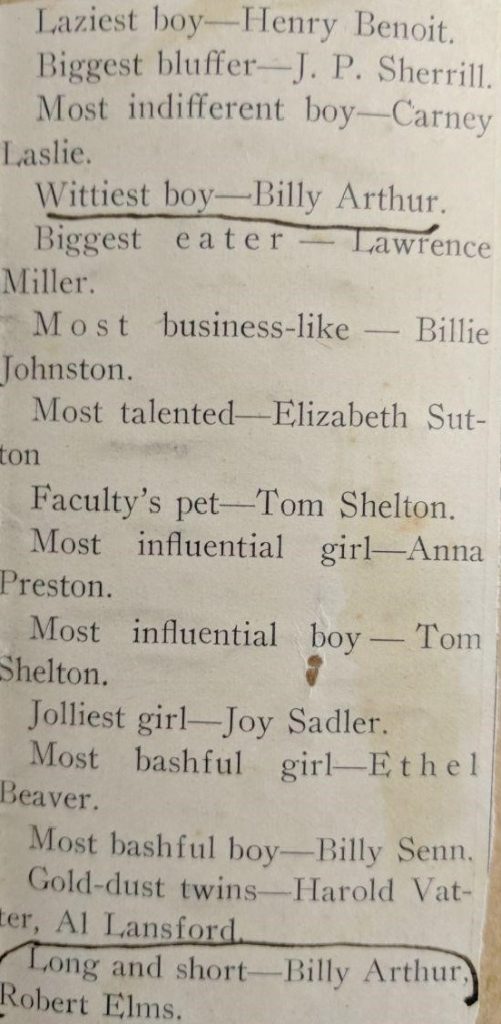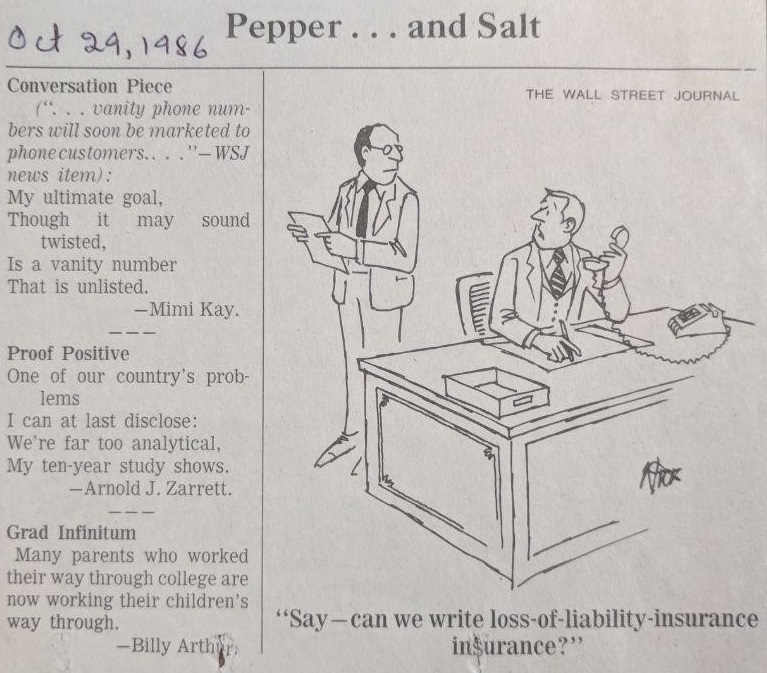The Fall 2017 Southern Historical Collection undergraduate student assistant, Ayush Dagar, UNC class of 2020, wrote this blog post. Ayush also provided research support and transcription work for other projects in the Southern Historical Collection during his semester on staff.

While many may remember Billy Arthur (1911 – 2006) for his size – he played many roles in his life: politician, hobby shop owner, vaudeville performer, mascot, newspaper editor, Pulitzer Prize hopeful, but through and through he was a comedian. I discovered Billy Arthur while doing research in the Southern Historical Collection on North Carolina politicians and was struck by the incredible diversity of his talents and occupations.

During his time at The University of North Carolina, Chapel Hill, Arthur was voted the “Wittiest Man” in his fraternity (Series 3, Folder 35). While chief editor of Jacksonville’s (N.C.) News and Views newspaper, their motto was “The Only Newspaper in the World That Gives a Whoop About Onslow County” (Series 3, Folder 35) And his is the only collection in the Southern Historical Collection that includes the “American wit–20th century” Library of Congress subject heading.

The Billy Arthur materials date back to 1883 and continue to 1997 as some of the pieces are from Arthur’s father and some from his son. The collection includes various correspondences with politicians (notably Terry Sanford), friends, family, and UNC staff (notably Coach Dean Smith – a collection of recent acclaim here in Wilson Library ). Much of the collection is comprised of Arthur’s written work including newspaper articles, notes for his comedy routines, diaries, and a book on North Carolina humor. There are also three scrapbooks full of photos and clippings that document Arthur’s life from childhood to the early 1960s.
Satirists are often humorous because they breaks from societal norms or because they poke fun at norms which would otherwise be taken for granted. The Billy Arthur collection demonstrates Arthur’s insights through the norms, trends and events which he examined as well as the ones he left out.
He talks about the relations between the sexes, and the change in gender roles which occurred during his lifetime. Arthur was married to the same woman his whole life and writes about what he learned in his marriage. In an article titled “The Model Husband,” (Series 5, Folder 58) Arthur recognizes how he went into marriage with antiquated ideas, literally quoting the NC Gazette in the late 1700s and a writer’s “Ten Commandments” to his wife written in 1875. The “commandments” include “remember to rise early in the morning and be prepared with becoming good humor to welcome thy husband” and “look for no jewelry from thy husband on the anniversary.” Billy highlights how the gender roles/norms of his era (the 1950s and 1960s) were just rewritten forms of the late 18th and 19th century.
In another satirical piece, (Series 3, Folder 27) Arthur discusses keeping one’s wife “in check,” by taking that attitude to its extreme, logical end. Arthur gives an anecdote of a farmer who finds a note on his barn reading, “leave $2,000 in the hollow stump in the pasture, or we’ll kidnap your wife.” Disturbed, the farmer wrote a reply note and put it in the stump. It said, “Haven’t got $2,000, but I’m interested in your proposition.” In another anecdote a man sees his wife outside kindling for firewood. “I felt so sorry for her that I couldn’t bear to look at her like that,” the man said. “All atremble and ragged with her torn petticoat showing. She looked so pitiful it really moved me. So I turned over and went back to sleep.”

In a final anecdote, Arthur tells of a man simply too lazy to help his wife being chased by a bear. Arthur touches on other social issues of his time, some of which resonate with our own time. He jokes about how difficult parking is to find, the price of college tuition, meager teacher salaries, etc.
While Arthur’s writing made me laugh out loud more than once, my parting thought really revolved around what was missing from his observations and commentary. All of his comments seem trivial when one considers the great social changes, for The South and The United States as a whole, which Arthur lived through. Why wouldn’t Arthur address racial tensions and the Civil Rights Movement? He seems to intentionally shy away from the topics. Perhaps this is because Arthur is white and not directly impacted by the systematic oppression which inspired and called for such a social movement. I would not claim that my limited review of his archival collection provides a full understanding of how Billy Arthur felt about the Civil Rights Movement – it certainly gives me a research question to build on. What was it about Arthur’s life or point of view that could make him so sharp and witty about sensitive topics such as gender roles and marriage but completely silent on the racial strife impacting his generation? Perhaps another semester in the Southern Historical Collection and could bring me closer to some answers….
